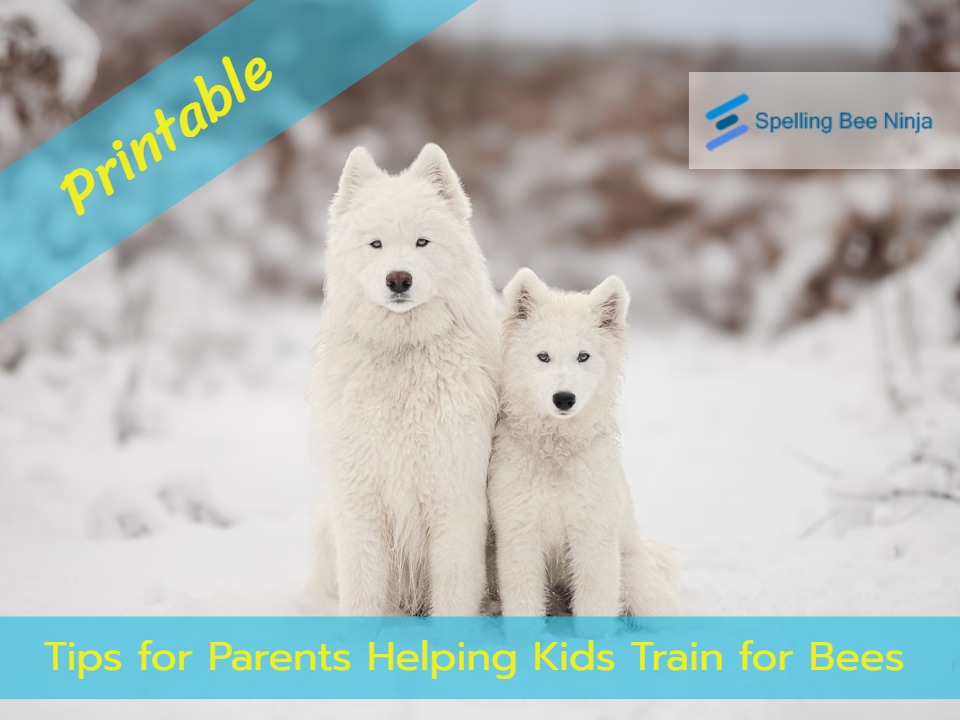Academic competitions like spelling bees, geography bees, math bees, and science bees have become increasingly popular for children of all ages. These events not only help kids showcase their knowledge but also promote discipline, memory skills, and self-confidence. However, success doesn’t come overnight—it requires consistent effort, smart strategies, and most importantly, parental support.
As a parent, your role is pivotal in helping your child prepare without pressure or burnout. Here’s how to support and guide them effectively in their bee preparation journey.
1. Understand the Bee’s Format and Requirements
Before diving into preparation, take time to thoroughly understand the specific bee your child is competing in. Is it a spelling bee with oral rounds, or a geography bee with multiple-choice questions? Each format demands a different approach.
What you can do:
Visit the competition’s official website.
Download study guides or word lists provided.
Watch previous bee videos to understand the pace and style of questioning.
Knowing what to expect helps you tailor the preparation process and avoid unnecessary surprises.
2. Set Realistic Goals Together
Goal setting gives your child something to work towards and builds motivation. However, these goals should be age-appropriate and centered on effort and learning rather than just winning.
Tips:
Set short-term goals (e.g., “Learn 25 new words a week”).
Include long-term goals (e.g., “Qualify for regionals”).
Celebrate progress, not just achievements.
This process helps kids develop self-discipline and a growth mindset, both of which are essential for academic success.
3. Create a Study Schedule That Balances Rest
Overloading a child with information can lead to burnout. A consistent, manageable schedule keeps preparation on track without overwhelming your child.
How to help:
Use a weekly calendar to plan study blocks.
Keep sessions short (20–30 minutes), especially for younger kids.
Schedule regular breaks and days off to refresh their minds.
Consistency is key—daily review, even for 15 minutes, is more effective than cramming before a bee.
4. Make Learning Interactive and Fun
Kids absorb information better when they’re actively engaged. Instead of drilling words or facts for hours, turn study time into games or challenges.
Ideas:
Use flashcards for memory drills.
Create spelling or trivia competitions at home.
Use educational apps and games related to the bee’s subject (e.g., geography quiz apps, math puzzles, etc.).
Learning doesn’t have to be tedious—when it’s fun, kids are more likely to stick with it.
5. Encourage Independent Learning
While your support is crucial, it’s important that your child feels ownership over their learning. Encourage them to explore topics independently and identify areas they want to improve.
What this looks like:
Let them choose their own study materials occasionally.
Teach them how to track their progress (e.g., a checklist or journal).
Discuss what they learned each day or week.
This approach boosts confidence and helps children develop lifelong study habits.
6. Build a Rich Vocabulary (for Spelling/Language Bees)
For spelling bees in particular, vocabulary is not just about memorizing words but understanding how they work—origins, meanings, and patterns.
Support vocabulary growth by:
Reading aloud together daily.
Using new words in daily conversation.
Introducing roots, prefixes, and suffixes.
Watching documentaries or shows with a strong educational angle.
The more words kids hear and use in context, the better they’ll perform in any language-based bee.
7. Use Mistakes as Teaching Moments
When your child forgets a fact or misspells a word, it’s a valuable learning opportunity. Don’t scold or criticize—encourage them to analyze and learn from it.
Ask:
“What do you think tripped you up?”
“How can we remember it next time?”
“Can we connect this word/fact to something you already know?”
By normalizing mistakes, you help your child develop resilience and analytical thinking.
8. Practice Under Real Conditions
Simulating the pressure of a real bee can make a big difference. It helps your child become comfortable with time constraints and public speaking (if applicable).
You can:
Hold mock bees at home.
Invite friends or family to act as an audience or competitors.
Use timers and scoring systems to track progress.
Practicing under realistic conditions reduces performance anxiety on the actual day of the competition.
9. Support Mental and Emotional Wellness
Competitive settings can be intense for young children. While some kids thrive under pressure, others may feel anxious. Your role is to provide reassurance, not pressure.
Ways to help:
Practice mindfulness or simple breathing exercises together.
Remind your child that winning isn’t everything.
Make time for relaxing activities and hobbies outside studying.
A calm, happy child performs better and handles both success and setbacks more gracefully.
10. Celebrate Every Milestone
Whether your child wins first place or simply participates, acknowledge the courage, dedication, and effort it took to prepare.
Celebration ideas:
Write them a heartfelt note of appreciation.
Plan a small treat or family activity.
Create a “bee journey scrapbook” with photos and certificates.
This helps build positive associations with learning and competition, encouraging them to try again next time.
Use a training system as Spelling Bee Ninja
A dedicated app like our Spelling Bee Ninja can help your kids while preparing for the Spelling Bee. It offers smart training, emulated spelling tests, personal word lists and a lot of features that will improve spelling capabilities in a very short time, maximizing the odds for your kid to succeed in the next school event.
Conclusion
Helping your child train for a bee is not just about learning facts or spelling words—it’s about nurturing curiosity, confidence, and resilience. As a parent, your encouragement, structure, and emotional support are the foundation for their success.
Remember, the goal isn’t just to win the bee—but to foster a love of learning and the skills that will benefit your child far beyond any competition stage.


